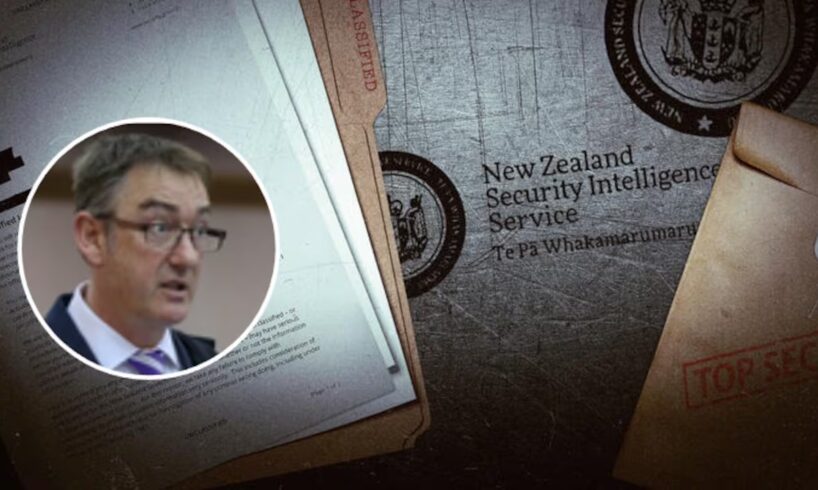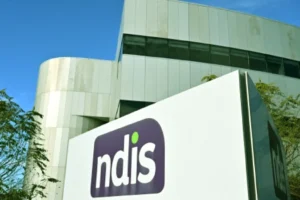
He said staff raised issues relating to “operational capability and health and safety risks for SIS staff”. Elsewhere, he described “differences of opinion about what constitutes appropriate operational practice and risk tolerance”.
The Inspector-General of Intelligence and Security is a critical oversight function for our intelligence agencies, with its power and responsibility significantly beefed up since the office was created in 1996.
Since then, it has gone from a reactive part-time role with limited powers to – since law changes in 2014 and 2017 – a fulltime office with investigative staff and a duty to carry out proactive reviews.
Under both the old and new whistleblower laws, the Inspector-General is the only lawful external authority NZSIS and Government Communications Security Bureau (GCSB) staff can approach with protected disclosures involving classified intelligence.
Judith Collins, Minister for the NZSIS.
Laws protecting whistleblowers have existed in New Zealand since 2000 allowing people to report serious wrongdoing to be protected from retaliation providing they do so in good faith and believing the claims to be true.
A review by the Herald of Inspector-General of Intelligence and Security reports back to 1997 – when the office was created – showed that no NZSIS officer or staff member had ever formally escalated concerns as a “whistleblower” to the intelligence watchdog.
Horsley first raised the approach by whistleblowers in his 2024-2025 annual report. The Herald sought further details through the Official Information Act, resulting in Collins releasing her briefing from the watchdog.
In the briefing, Horsley described being initially approached by a single individual but then “current or former NZSIS staff who wished to discuss similar concerns”.
Issues raised included culture, financial management, leadership, risks to the health and safety of NZSIS staff and operational capability.
While Horsley doesn’t spell out how many current and former NZSIS staff raised issues, his briefing to Collins clearly referred to having met with multiple whistleblowers.
Horsley said at first sight, the disclosure could be seen as “serious wrongdoing” as defined in the Protected Disclosures Act.
By law, that meant an act or failure involving a crime, a serious risk to people’s health or safety, a threat to law enforcement or fair trial rights, misuse of public funds, or behaviour that is negligent, oppressive or grossly unfair.
Pipitea House, Wellington, which houses the NZSIS and GCSB. Photo / Mark Mitchell
However, he said close examination showed none of the issues reached that definition and “amounted to differences of opinion about what constitutes appropriate operational practice and risk tolerance”.
“I found no preliminary indication of unlawful conduct, and concluded that none of the specific incidents or concerns raised reached a threshold where further inquiry by my office was necessary, or likely to resolve the discloser’s concerns.”
Horsley said the NZSIS had told him changes had been made “since the time of the alleged incidents and conduct”. In relation to leadership, the NZSIS told Horsley “not all the matters raised were supported by their own findings”.
He said some of the issues raised – such as the NZSIS’ performance, spending and effectiveness – were not in his remit to investigate.
Other issues, he said, he was aware of and would be dealt with through routine oversight. That included issues where the whistleblowers’ concerns “overlap with my own concerns about the effectiveness of agency compliance mechanisms and audit functions”.
NZSIS agents are, in certain situations, allowed to break into homes and vehicles to plant listening or tracking devices.
Horsley said care had to be taken to separate the complaints made to him from matters that should be handled by the NZSIS as an employer.
A major focus, he said, was preserving the anonymity of those who complained with “genuine concerns” and at “professional risk”.
The instance of intelligence staff stepping forward to make a “protected disclosure” was a significant first in nearly three decades of intelligence oversight.
Over that time, annual reports have noted staff complaints on matters such as employment disputes or security vetting issues making the emergence of multiple whistleblowers an extraordinary event over its history.
There were periods of several years in which no staff complaints were recorded at all and no complaints prior to these referenced operational conduct or decision-making.
The NZSIS doesn’t comment on specific missions and rarely talks about capability but Ministerial Policy Statements setting out allowed spying activities and the IGIS reports describe tasks in which officers enter high-risk environments to gather intelligence from human sources.
Activities can take place in New Zealand and overseas, involving the use of false identities, covert communications and real-time surveillance. Work at times includes entering people’s businesses or homes to install technical monitoring devices or to intercept communications.
Horsley said he would use the instance to reinforce the role of his office as the only external yet lawful route for those in the intelligence community to raise concerns. Talking to the media, for example, could expose staff to criminal prosecution and the possibility of imprisonment.
Aside from possible internal changes, the significant shift for New Zealand’s intelligence agencies has been an increasing involvement in dealing with transnational organised crime.
The issue shifted from being a law-and-order problem to one of national security with Cabinet-approved strategies and Department of Prime Minister and Cabinet papers putting the intelligence agencies alongside police, Customs and Immigration as agencies charged with managing the issue.
An NZSIS spokesman said protected disclosures to the Inspector-General were taken seriously.
The matters “relate to one specific part of the NZSIS from several years ago” and that the changes referred to by Horsley were completed or under way before the investigation. The spokesman said the issues did not relate to “operational capabilities”.
David Fisher is based in Northland and has worked as a journalist for more than 30 years, winning multiple journalism awards including being twice named Reporter of the Year and being selected as one of a small number of Wolfson Press Fellows to Wolfson College, Cambridge. He joined the Herald in 2004.
Sign up to The Daily H, a free newsletter curated by our editors and delivered straight to your inbox every weekday.





